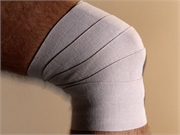Occupational lifting, kneeling, climbing, squatting, standing versus sedentary work linked to knee OA
THURSDAY, July 9, 2020 (HealthDay News) — The odds of knee osteoarthritis (OA) are increased in association with heavy physically demanding occupations and occupational activities, according to a review published online July 7 in Arthritis Care & Research.
Xia Wang, M.Med., Ph.D., from the University of Sydney, and colleagues conducted a systematic review to examine the correlation between occupational exposures and knee OA and total knee replacement. Data were included from 25 case-control studies (20,505 participants), 36 cross-sectional studies (139,463 participants), and 19 cohort studies (16,824,492 participants).
The researchers found that the odds of knee OA were increased in a synthesis of 71 studies that combined different physically demanding jobs and occupational activities versus sedentary exposures and/or low exposure groups (odds ratio, 1.52). Men, those in industry-based studies, and those in studies assessing lifetime occupational exposures had greater odds of knee OA. Farmers, builders, metal workers, and floor layers were included in nine specific job titles that were associated with knee OA. Compared with sedentary work, occupational lifting, kneeling, climbing, squatting, and standing were all associated with increased odds of knee OA.
“These findings reinforce the importance of occupational exposures in OA, beyond its roles of musculoskeletal injury, and these data should be carried forward to help develop preventions and inform policy in occupational health,” the authors write.
Several authors disclosed financial ties to the pharmaceutical and medical device industries.
Copyright © 2020 HealthDay. All rights reserved.








